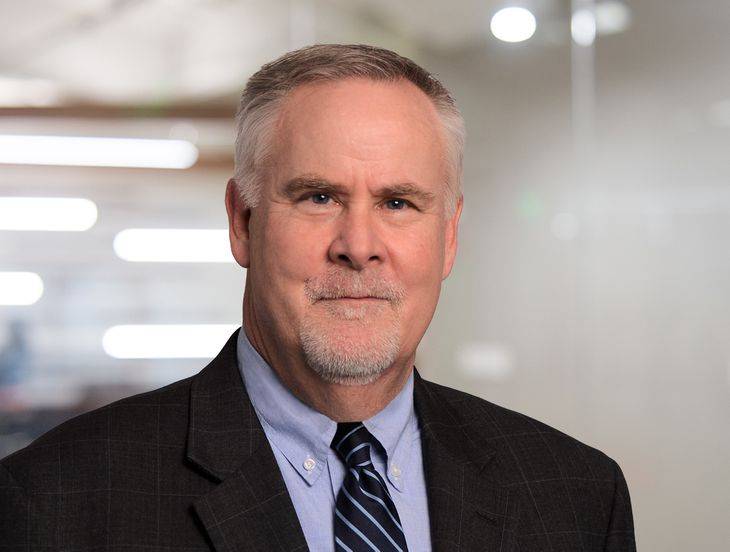What Do the New Mask and Vaccine Mandates Mean for Washington Employers?
Insights
8.24.21
Governor Inslee and Washington’s Department of Health have been busy the past two weeks modifying existing mask rules and enacting new vaccine requirements for certain classes of healthcare workers. There has been enough activity in the past few weeks that many Washington employers and businesses might feel uncertain regarding their obligations and rights. The following is a summary of the new mask order and the vaccine proclamation requirements.
The Department of Health’s New Statewide Mask Mandate
As set forth in Governor Inslee’s proclamation and the related Department of Health (DOH) Order, all Washingtonians – regardless of vaccination status – must wear a qualifying face covering in all indoor public spaces where an individual from outside of their household is present, unless one of the very narrow exceptions applies. This mandate took effect on August 23 and is in place until it is changed or rescinded.
The Order lists multiple types of permitted face coverings, including masks that fit snugly across the sides of the face, cover the nose and mouth, and are secured with ties or elastic bands.
Potential Workplace Exceptions to the Mask Mandate
The DOH’s Order sets forth the exceptions to the face covering requirements. Those likely relevant to the workplace include:
- Individuals eating or drinking;
- Individuals working alone, isolated from interactions with others, and have little or no expectation of in-person interruption, such as working in an office with a closed door, a delivery driver with no face-to-face interaction, or a lone janitor working in a building;
- Individuals who work in an office that is not open to the general public, provided no outside visitors are present, and provided the employer has confirmed the individual is “fully vaccinated” and maintains a record of proof of vaccination under existing Labor & Industries rules; and
- Individuals who are granted a reasonable accommodation for a sincerely held, bona fide religious belief or disability by their employer.
An individual is “fully vaccinated,” two weeks after they have received the second dose in a two-dose series (Pfizer-BioNTech or Moderna) or a single dose vaccine (Johnson & Johnson/Janssen).
Who Is Not Exempted from the Mask Mandate
Workers who interface with the public, or work in areas where the public, visitors, or non-employees are present, such as a restaurant, food service, or retail worker, must wear a mask regardless of vaccination status.
Mandatory Vaccinations
On following classes of workers must now be fully vaccinated, and provide proof to their employer, no later than October 18, 2021:
- Workers employed by any state agency;
- Workers, including volunteers, employed in a “Health Care Setting” for a “Health Care Provider.” Both of those terms are defined in Proclamation No. 21-14, and essentially include any individual listed on the DOH’s Healthcare Professional Credentialing Requirements This broad list includes every health or mental health care workers, including registered nurse practitioners, dentists, and massage therapists; and
- Workers employed in an “Educational Setting,” which is defined in Proclamation No. 21-14.1.
Proof includes a copy of a CDC Vaccination Card, state immunization record, or equivalent if the employee was vaccinated outside of the United States. A self-attestation or declaration, however, is not sufficient proof.
The only exceptions to the vaccine mandate are for individuals who have been granted a reasonable accommodation because of disability or sincerely held, bona fide religious belief, provided such an accommodation does not cause undue hardship. After receiving a request, employers should proceed with the interactive process consistent with the familiar standards for reasonable accommodations. Employers need to conduct an individualized assessment and must:
- In the case of a disability-related reasonable accommodation, obtain documentation from the employee’s health care provider stating that they have a disability that “necessitates an accommodation and the probable duration of the need for the accommodation”;
- In the case of an accommodation request based on a religious belief, document the request and include a statement in the document explaining the way in which the requirements of this order conflict with the sincerely held religious belief, practice, or observance of the individual; and
- Require a worker who has been granted an accommodation to take COVID-19 safety measures that are consistent with the DOH’s recommendations.
The Proclamation further provides that violators of the Order may be subject to criminal penalties. Governor Inslee also cautioned that he may be forced to reinstate prior statewide prohibitions if people fail to comply with the mandated state COVID-19 protocols.
What’s Next?
As we have seen throughout the pandemic, these rules can change at any time. You should continue to monitor for new announcements from the governor, state Department of Health, and Labor & Industries.
Fisher Phillips will continue to monitor developments related to the pandemic, COVID-19 vaccines, and related workplace questions that arise. To ensure you stay up to speed with the latest developments, make sure you are subscribed to Fisher Phillips’ Insight System to get the most up-to-date information, and check out our FP Vaccine Resource Center For Employers. For further information, contact your Fisher Phillips attorney, the authors of this Insight, or any attorney in our Seattle office.
Related People
-
- Catharine Morisset
- Partner
-
- Robert M. Robenalt
- Partner

